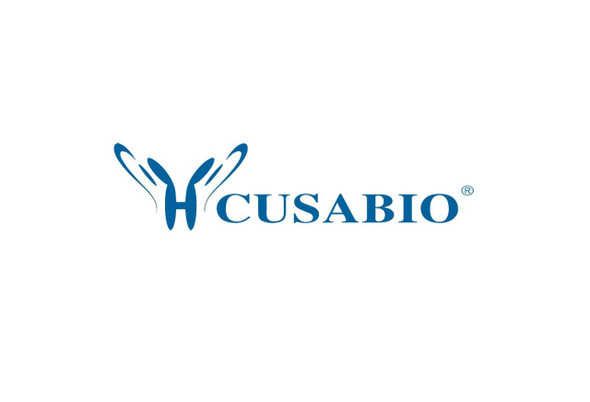Cusabio Human Recombinants
Recombinant Human C-X-C motif chemokine 3 (CXCL3) | CSB-EP006249HU
- SKU:
- CSB-EP006249HU
- Availability:
- 13 - 23 Working Days
Description
Recombinant Human C-X-C motif chemokine 3 (CXCL3) | CSB-EP006249HU | Cusabio
Alternative Name(s): GRO-gamma(1-73)Growth-regulated protein gamma ;GRO-gammaMacrophage inflammatory protein 2-beta ;MIP2-beta
Gene Names: CXCL3
Research Areas: Immunology
Organism: Homo sapiens (Human)
AA Sequence: ASVVTELRCQCLQTLQGIHLKNIQSVNVRSPGPHCAQTEVIATLKNGKKACLNPASPMVQKIIEKILNKGSTN
Source: E.coli
Tag Info: N-terminal 6xHis-tagged
Expression Region: 35-107aa
Sequence Info: Full Length of Mature Protein
MW: 11.9 kDa
Purity: Greater than 90% as determined by SDS-PAGE.
Relevance: Ligand for CXCR2 . Has chotactic activity for neutrophils. May play a role in inflammation and exert its effects on endothelial cells in an autocrine fashion. In vitro, the processed form GRO-gamma(5-73) shows a fivefold higher chotactic activity for neutrophilic granulocytes.1 Publication
Reference: Generation and annotation of the DNA sequences of human chromosomes 2 and 4.Hillier L.W., Graves T.A., Fulton R.S., Fulton L.A., Pepin K.H., Minx P., Wagner-McPherson C., Layman D., Wylie K., Sekhon M., Becker M.C., Fewell G.A., Delehaunty K.D., Miner T.L., Nash W.E., Kremitzki C., Oddy L., Du H. , Sun H., Bradshaw-Cordum H., Ali J., Carter J., Cordes M., Harris A., Isak A., van Brunt A., Nguyen C., Du F., Courtney L., Kalicki J., Ozersky P., Abbott S., Armstrong J., Belter E.A., Caruso L., Cedroni M., Cotton M., Davidson T., Desai A., Elliott G., Erb T., Fronick C., Gaige T., Haakenson W., Haglund K., Holmes A., Harkins R., Kim K., Kruchowski S.S., Strong C.M., Grewal N., Goyea E., Hou S., Levy A., Martinka S., Mead K., McLellan M.D., Meyer R., Randall-Maher J., Tomlinson C., Dauphin-Kohlberg S., Kozlowicz-Reilly A., Shah N., Swearengen-Shahid S., Snider J., Strong J.T., Thompson J., Yoakum M., Leonard S., Pearman C., Trani L., Radionenko M., Waligorski J.E., Wang C., Rock S.M., Tin-Wollam A.-M., Maupin R., Latreille P., Wendl M.C., Yang S.-P., Pohl C., Wallis J.W., Spieth J., Bieri T.A., Berkowicz N., Nelson J.O., Osborne J., Ding L., Meyer R., Sabo A., Shotland Y., Sinha P., Wohldmann P.E., Cook L.L., Hickenbotham M.T., Eldred J., Williams D., Jones T.A., She X., Ciccarelli F.D., Izaurralde E., Taylor J., Schmutz J., Myers R.M., Cox D.R., Huang X., McPherson J.D., Mardis E.R., Clifton S.W., Warren W.C., Chinwalla A.T., Eddy S.R., Marra M.A., Ovcharenko I., Furey T.S., Miller W., Eichler E.E., Bork P., Suyama M., Torrents D., Waterston R.H., Wilson R.K.Nature 434:724-731(2005)
Storage: The shelf life is related to many factors, storage state, buffer ingredients, storage temperature and the stability of the protein itself. Generally, the shelf life of liquid form is 6 months at -20?/-80?. The shelf life of lyophilized form is 12 months at -20?/-80?.
Notes: Repeated freezing and thawing is not recommended. Store working aliquots at 4? for up to one week.
Function: Ligand for CXCR2 (By similarity). Has chemotactic activity for neutrophils. May play a role in inflammation and exert its effects on endothelial cells in an autocrine fashion. In vitro, the processed form GRO-gamma(5-73) shows a fivefold higher chemotactic activity for neutrophilic granulocytes.
Involvement in disease:
Subcellular Location: Secreted
Protein Families: Intercrine alpha (chemokine CxC) family
Tissue Specificity:
Paythway: Chemokinesignalingpathway
Form: Liquid or Lyophilized powder
Buffer: If the delivery form is liquid, the default storage buffer is Tris/PBS-based buffer, 5%-50% glycerol. If the delivery form is lyophilized powder, the buffer before lyophilization is Tris/PBS-based buffer, 6% Trehalose, pH 8.0.
Reconstitution: We recommend that this vial be briefly centrifuged prior to opening to bring the contents to the bottom. Please reconstitute protein in deionized sterile water to a concentration of 0.1-1.0 mg/mL.We recommend to add 5-50% of glycerol (final concentration) and aliquot for long-term storage at -20?/-80?. Our default final concentration of glycerol is 50%. Customers could use it as reference.
Uniprot ID: P19876
HGNC Database Link: HGNC
UniGene Database Link: UniGene
KEGG Database Link: KEGG
STRING Database Link: STRING
OMIM Database Link: OMIM









